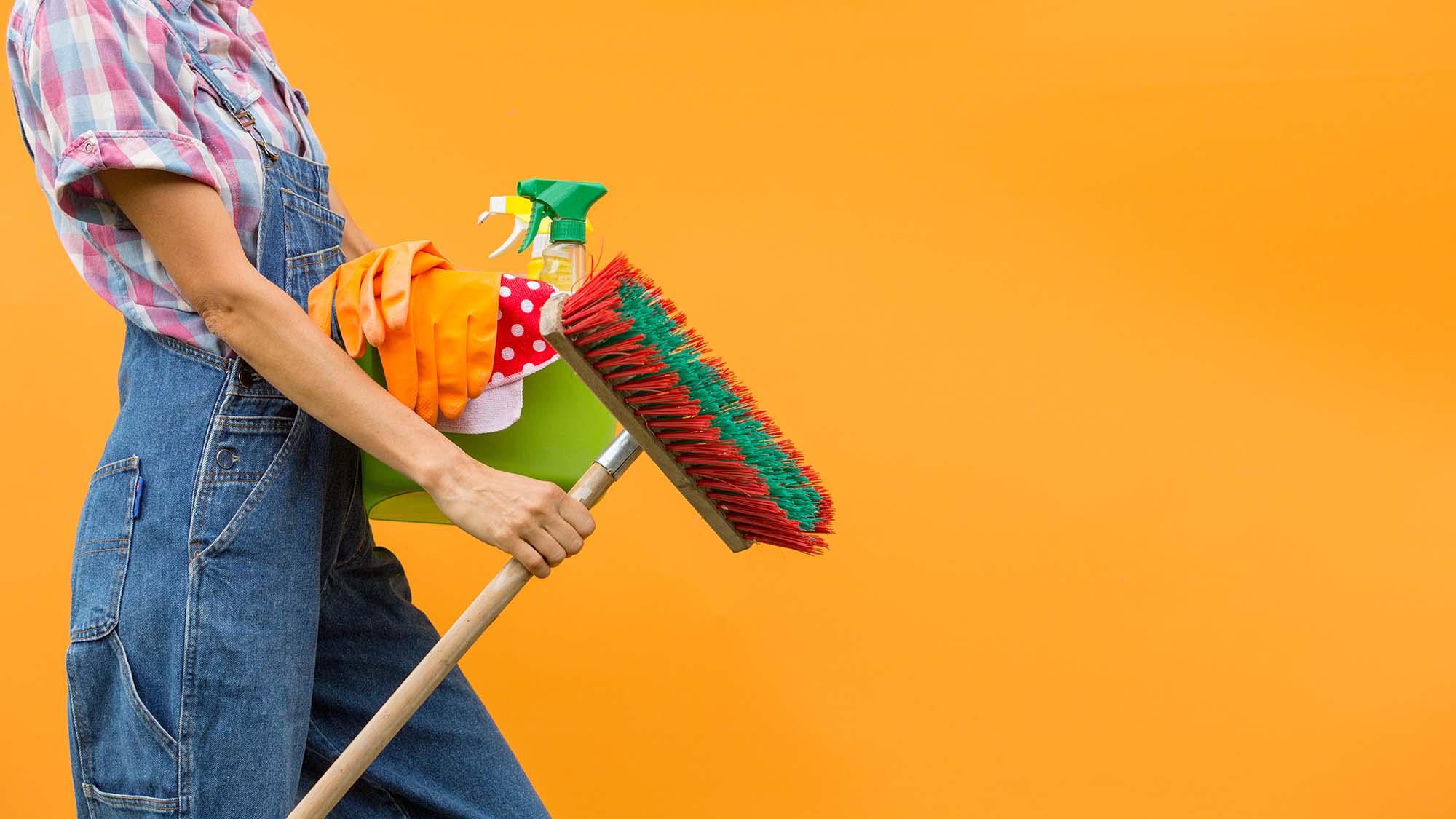Ceramic tiles
Ceramic tiles are a popular choice because of their affordable cost and customization options. You might use these tiles indoors or outdoors. Either way, you’ll want to regularly clean your tiles to keep dirt and dust from building up. If your ceramic tiles are in a more trafficked area (like your kitchen or bathroom) where spills are bound to happen, clean your tiles at least once a week.
To clean ceramic tiles, clean one section at a time. First, sweep with a broom to clear any debris. Use a flat mop or a rag to make sure you don’t miss anything in the grout lines. For the cleaning solution, use warm water by itself or with a small amount of dish soap. If you use soap while you clean, keep an eye out for soap residue. Soap can leave a filmy layer that clouds your tiles, but you can remove the residue with an all-purpose cleaner. The biggest tip? Dry your ceramic tiles by hand to prevent water spots.
Porcelain tiles
Porcelain tiles are a more water-resistant form of ceramic tiles. Because porcelain is essentially a type of ceramic tile, cleaning porcelain is similar to cleaning ceramic tiles. You should follow the weekly cleaning routine listed above for ceramic tiles, but you’ll also want to do a monthly cleaning.
For the monthly cleaning, use vinegar instead of soap. The vinegar breaks down grease and hard water to leave your tiles clean and disinfected. Additionally, vinegar is an environmentally friendly cleaner that will help your floors really shine. As soon as you finish cleaning the porcelain tiles with vinegar, open the windows to air out the strong smell.
Stone tiles
Cleaning with the wrong type of cleaner can ruin stone tiles. Avoid acidic ingredients like vinegar, lemon, and other citrus fruits. The high acidity will cause a chemical reaction with the stone.
- Slate tiles: Clean slate tile floors with warm water and dish soap. If you have coated slate tiles, be sure to dry them right away to stop water spots from forming.
- Marble tiles: Beyond avoiding acidic cleaners, you’ll also want to stay away from anything that can scratch the marble. Marble is a soft stone, so tough broom bristles can even damage the surface. Dust mop and clean your marble tiles with a phosphate-free dish soap.
- Travertine tiles: Use a sponge, water, and a cleaner specifically made for marble or granite to clean travertine tiles. You won’t need soap for these floors if you clean them regularly.
- Granite tiles: To clean granite tiles, stick with dish soap and warm water. Use a soft cloth to prevent scratching while you clean. For a more polished look, you can use a homemade solution (with baking soda or rubbing alcohol) or cleaners.
Get clean, sparkling tile floors
One of the best aspects of tile flooring is that you don’t have to worry much about maintenance. If you keep up with cleaning, tiled floors will look great and last for a long time to come. Beautiful tile floors can be yours with a little elbow grease and careful use (or avoidance) of citrus cleaners. To install or repair tile floors in your St. George home or business, contact the flooring experts at GS Flooring today!







